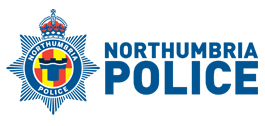GRADUATE DETECTIVE PROGRAMME
What’s involved in the graduate detective programme?
What qualifications do I need to apply?
To apply for the graduate detective programme, you’ll need to have a level 6 or higher qualification (i.e. master’s degree) in any subject area or be a student within the final year (semester/term) of your degree.
In addition, you must hold Level 2 qualifications in both English and Maths. For example, a GCSE or iGCSE at grade C (level 4) or above, Functional Skills Level 2, Key Skills Level 2 (Communication and / or Literacy) or Adult Numeracy / Literacy Plus.
You don’t need any previous policing knowledge or experience, and it doesn’t matter if you’ve never previously considered a career in policing.
What support will I get?
You’ll be supported to reach your full potential and succeed in the graduate programme. A dedicated tutor will guide you through your first few months who will help you build your skills and offer practical and pastoral support.
The role of a police officer is a challenging one. We continue to invest in trained mental health first aiders onsite and other valuable support mechanisms, an employee advice service offering 24/7 access to trained counsellors and a peer-led support programme as well as other holistic approaches to caring for your wellbeing.
Where will I be based?
Once at final offer stage of your application, we’ll let you know where you will be based. The decision is based on our needs as an organisation, but also takes into account where you live, any personal circumstances or restrictions of areas you cannot work. We always try to make your commute to work as reasonable as possible, but we’re unable to guarantee that you’ll be placed in a nearby area.
What you need to know before you apply
What you need to know before you apply
What you need to know before you apply
Take your first steps into policing
Before you apply to become a 999 response officer, detective or neighbourhood officer you’ll need to join a mandatory information event.
Here, you’ll gain insight into what working at Northumbria Police is really like, find out more about the application process and how to prepare for the role, eligibility requirements, police officer pay & benefits, and you’ll have the opportunity to speak to current officers.
Choose your preferred date below to sign up to an upcoming Teams, online event.
Can’t make these sessions? We’ll be running events all year, check back for later dates.
